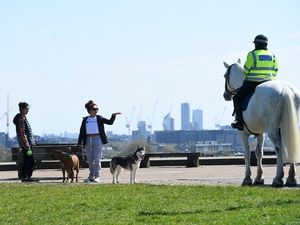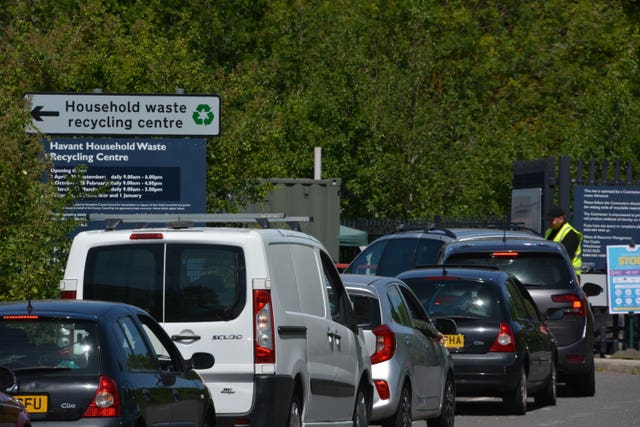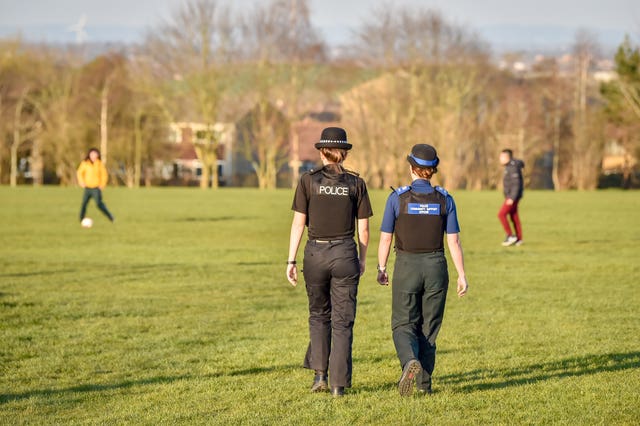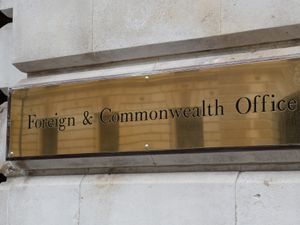Coronavirus lockdown laws: What has changed?
Legislation in England was updated on Wednesday.

Police officers across the UK continue to have the power to arrest or fine people flouting coronavirus lockdown rules.
But the sweeping restrictions on movement which came into force in England on March 26 were updated at 12.01am on Wednesday.
This sees certain elements of changes in Government guidance written into law.
Wales, Scotland and Northern Ireland are either sticking with existing rules or writing their own amendments.
– What has changed?
The Health Protection (Coronavirus, Restrictions) (England) Regulations 2020 have largely remained unaltered, save for a few key exceptions which could have a significant impact in relaxing restrictions on movement for the public.
They are still imposed “in response to the serious and imminent threat to public health” posed by Covid-19.
– Can I leave my house?
Yes, but you still need a reasonable excuse.
This still includes: to buy food and medical supplies, to go to a funeral in some cases, attending court and take part in legal proceedings, and to “escape a risk of harm”.
Additionally, the new law makes clear people can now “collect goods ordered” from businesses which have been allowed to stay open, albeit with restrictions, and go to waste or recycling centres.
– What about exercise?
You can now work out with one person from another household, as well as still on your own or with members of your own household.
– Where can I go?
To a “public open space for the purposes of open-air recreation to promote physical or mental health or emotional wellbeing” alone, with their household or with one member of another household as this is now also classed as a reasonable excuse to leave the house.
The law defines public open spaces as public gardens, open country and “access land” in the countryside where there are rights of way.
There are no limitations on the distance you can travel or geographical restrictions written into law.

But the Government has warned the public could break existing rules still in place in Wales, for example, if they cross the border during their day trip.
– Can I go for a drive?
Yes, this was never banned under the laws, even though ministers had previously advised against it.
Petrol stations, car repair and MOT services, taxi companies and car parks are still among businesses which can remain open, albeit with restrictions.
– How often can I go out?
As much as you like.
Although previous Government advice was to exercise once a day, the law has never actually prohibited how many times you could leave your house or exercise, and this remains the case.

– What else can I do?
You can start up your house hunt again.
The original regulations said a reasonable excuse included to “move house where reasonably necessary”.
The change to the law now says it is permitted to “undertake any of the following activities in connection with the purchase, sale, letting or rental of a residential property”.
They include: visiting estate or letting agents; developer sales offices or show homes; viewing residential properties to look for a property to buy or rent; preparing a residential property to move in, moving home; visiting a residential property to undertake any activities required for the rental or sale of that property.
– What else does the law say?
Outdoor sports courts and garden centres have been added to the list of locations and businesses – like parks, supermarkets, hardware stores and post offices – which are allowed to stay open, albeit with restrictions.
Hotels may also provide accommodation to key workers in some circumstances.
– But what about social distancing?
Neither the original regulations or the amended legislation address social distancing specifically, so keeping two metres (6ft) apart in certain circumstances was never a legal requirement.

But the Government strongly advises the public to do this wherever possible with those not in their household to help prevent the spread of the virus.
This may raise questions over whether police officers can enforce this by law or fine those who have not complied.
– So can I see family and friends I don’t live with?
Yes, but according to the law only one person from another household at a time in a public space or for exercise as mentioned above.
Government ministers have urged people not to visit relatives and friends in their own homes or gardens.
– Has anything changed for the police?
Yes, the fines they can issue are higher in England, now starting at £100 – reduced to £50 if paid within 14 days.
The fine doubles to £200 for a second and subsequent offences, to a maximum of £3,200.
Action by officers is still expected to be “necessary and proportionate”.
– How long do the rules last?
The emergency law needs to be reviewed at least once every 21 days and remains in place until scrapped by the Government.
Ultimately they expire after six months of initial introduction if not renewed.





